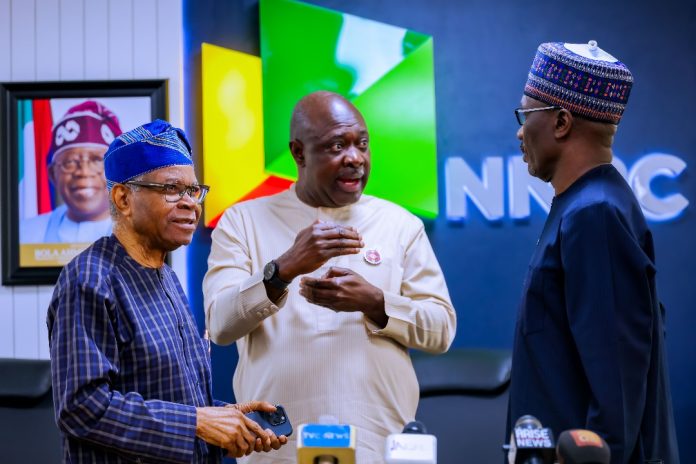The Nigerian National Petroleum Company Limited (NNPCL) is under increasing pressure to reduce petrol prices after MRS filling station, in partnership with Dangote Refinery, announced a significant fuel price cut earlier this week. This development follows Dangote Refinery’s February 1, 2025, announcement of an ex-depot price reduction from N970 to N870 per litre.
MRS, in a statement released on its official X account, confirmed that it had reduced its pump price, with petrol now selling at N925 per litre in Lagos, N933 in the South West, N945 in the North, and N955 in the South East, down from around N970 per litre. This marks the first fuel price reduction by MRS in 2025.
According to Billy Gillis-Harry, the National President of the Petroleum Products Retail Outlet Owners Association, and Chinedu Ukadike, the Spokesperson for the Independent Petroleum Marketers Association of Nigeria, this move puts added pressure on NNPCL to follow suit. Gillis-Harry stated that NNPCL “has no choice but to reduce petrol retail prices” because consumers are unlikely to continue buying petrol at the higher price when cheaper alternatives are available. Ukadike echoed similar sentiments, suggesting that NNPCL will likely lower its prices soon due to the ongoing price war with Dangote Refinery.
However, despite the recent reduction in petrol prices, the impact on transportation and food prices has been minimal. Gillis-Harry pointed out that the cost of transportation has not decreased, which is largely attributed to the weak purchasing power of Nigerians. He emphasized that while the fuel price reduction may have a long-term impact, it has yet to affect daily costs like transportation and food prices.
Gillis-Harry also expressed concerns over the frequent price adjustments in the petrol sector, warning that such volatility could lead to fuel security issues. He explained that constant price fluctuations create challenges for marketers who often purchase fuel at higher prices only to sell it at a loss when prices drop unexpectedly.
While the price reduction may eventually trickle down to affect the cost of goods and services, Ukadike noted that its impact will take time. The price rivalry between NNPCL and Dangote Refinery has pushed fuel prices down in recent months, but the long-term effects on transportation and the broader economy remain uncertain.
by NIyi Jacobs
As the competition between NNPCL and Dangote Refinery intensifies, it is clear that consumers and industry players alike are hoping for more stable pricing to help improve Nigeria’s fuel market and the economy as a whole














